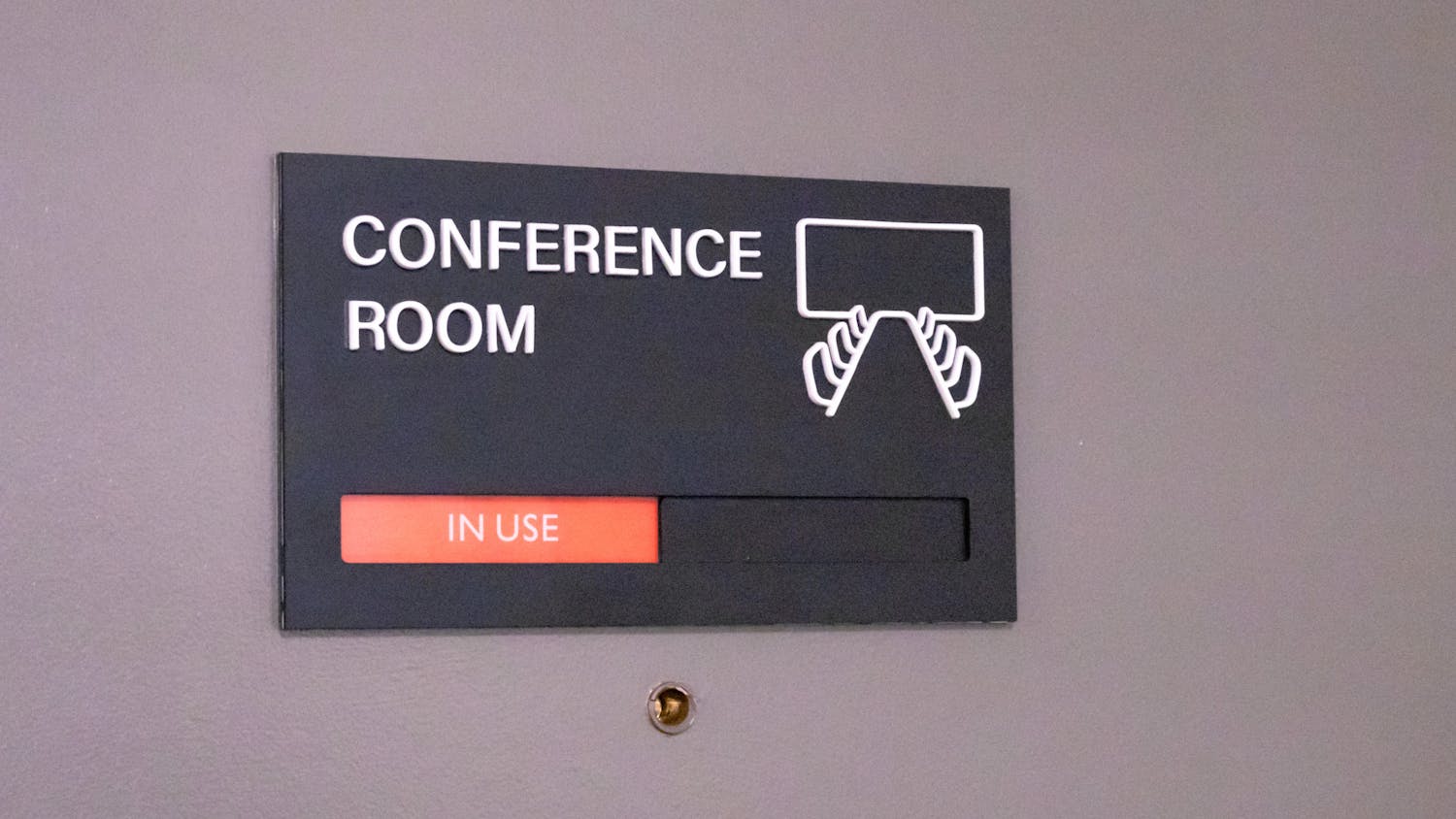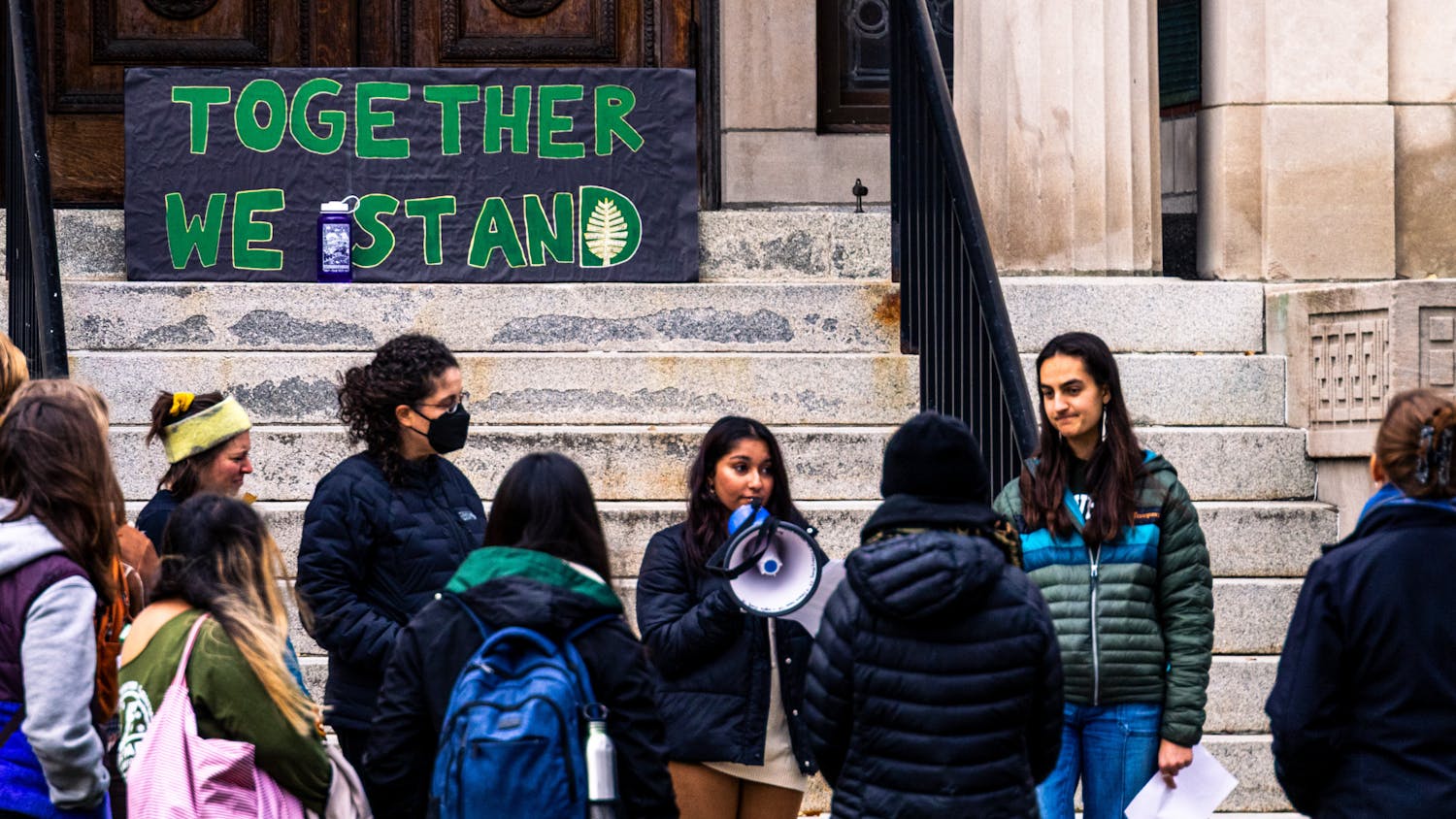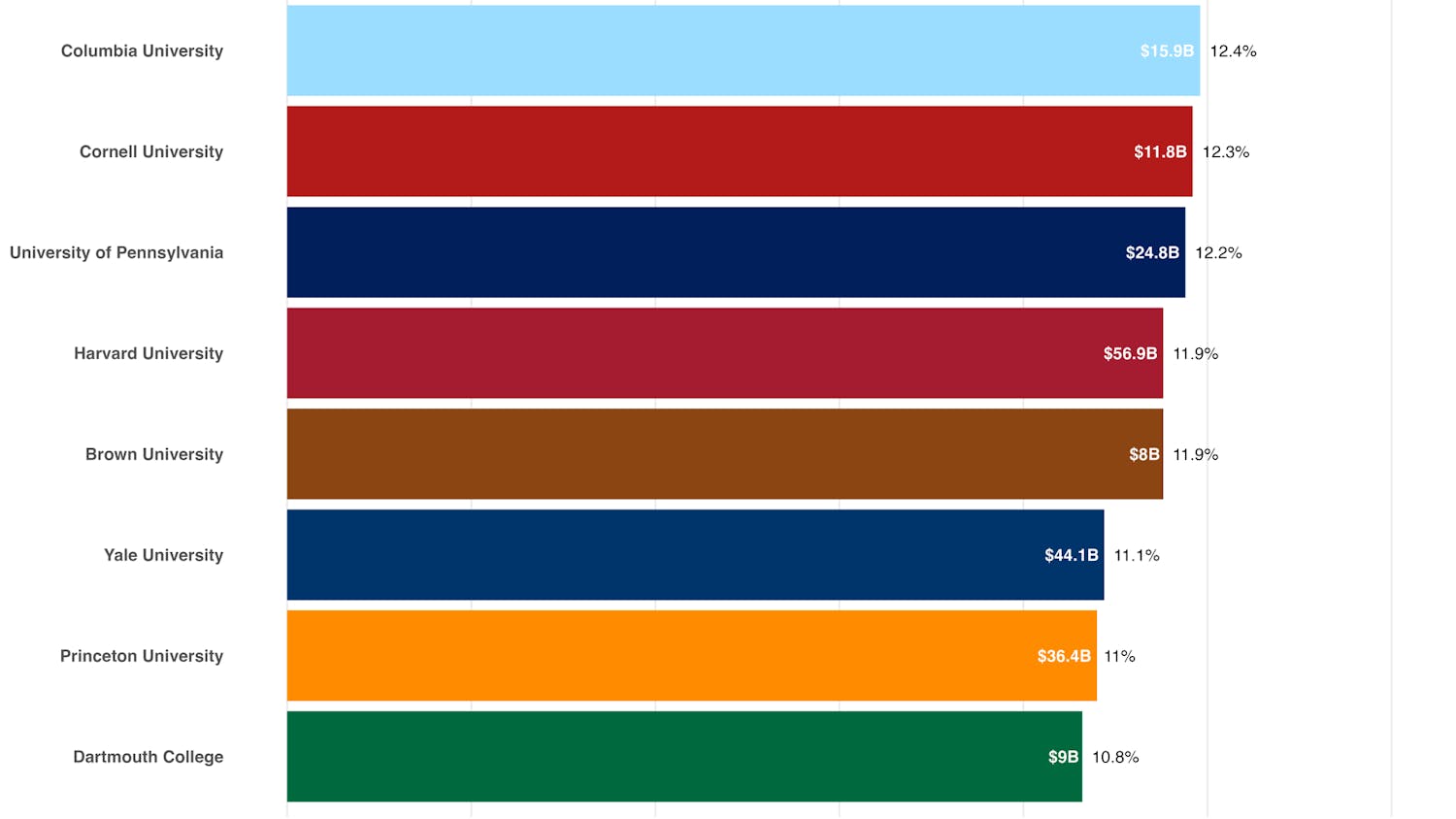"We feel that [the PE requirement] is part of the total educational experience," Roger Demment, senior associate athletic director for physical education and recreation, said. "Dartmouth is set in a rural area and we feel that a healthy body goes hand-in-hand with a healthy mind. We get positive feedback from students because we have a student body that for the most part is very active."
Playing intercollegiate or club sports, "completing activity courses [and] wellness-oriented, non-activity courses" fulfill the requirement, according to the College's website.
So do other activities less commonly associated with exercise.
Members of the College's marching band qualify for PE credit because they are dedicating so much time to the band and their performances require a certain amount of movement, according to Grace Nauman '11, the band's secretary.
"It'd be difficult to have a band of any quality if we had to find time to get other PE credits," she said. "It's one of the big incentives. Without it, we wouldn't have a band and football games would be even more depressing than they already are."
Marching band is also eligible for PE credit because it supports the College's athletic program, according to Nauman and Demment. Similarly, students in the Mean Green program can earn PE credit by attending eight football, basketball or hockey games. Athletic team managers also receive credit for their work with Dartmouth athletics.
"We like to support the overall athletic program we have," Demment said. "PE credit is a reward for devoting a certain amount of time."
Demment called athletic team managers "an important exception" to the rule that PE credit is given for working on healthy bodies. The athletic department does recommend that students fulfill their credits through different courses so that they gain some sort of physical activity, Demment said.
"We offer such a wide range of activities that there's something there for everyone," Demment said.
PE credit is also given as a reward to students who participate in the Peer Education Action Corps program, according to Kari Jo Grant, coordinator of health education programs. The PEAC program, offered during the Fall term, teaches students to be health opinion leaders and trains them to identify campus resources that will improve the overall health of the student body.
"Students show an interest regardless of the credit but it's a nice reward for their commitment," Grant said. "All the things we learn are about being healthy. It's not just your brain or your body. It's balancing all that."
Participation in the Fitness and Lifestyle Improvement Program -- which offers courses such as spinning and yoga -- and certain student groups, including performing arts groups like Sheba, also provide PE credit.
Trip leader training, a program required for all Dartmouth Outing Club Freshmen Trips, also grants students PE credit. The training includes three seminars on group dynamics, risk assessment and outdoor wilderness skills, respectively. Trip leaders must also be CPR and First Aid Certified, Anna Krigel '09, one of this year's trip leader trainers, said.
"They complete the number of hours you need to get PE credit," Krigel said. "They're learning to live outdoors and to save lives."
Although a student can complete the training and not lead a trip while still earning the credit, the assumption is that the student will lead, Demment said.
The PE component of graduation requirements emerged in the 1940s, according to Demment. In the 1950s, students had to take PE classes throughout their first year, and up until the 1990s, students had to complete their credits by the end of their second year.
The College introduced FLIP in the mid-1980s for College employees, according to the Dartmouth web site. It has since expanded to include students and Upper Valley residents.
Demment said that he has noticed trends in the popularity of certain FLIP offerings over the years. Whereas there are currently 12 sections of yoga, there were none 15 years ago, and 10 years ago step aerobics was very popular, according to Demment.




